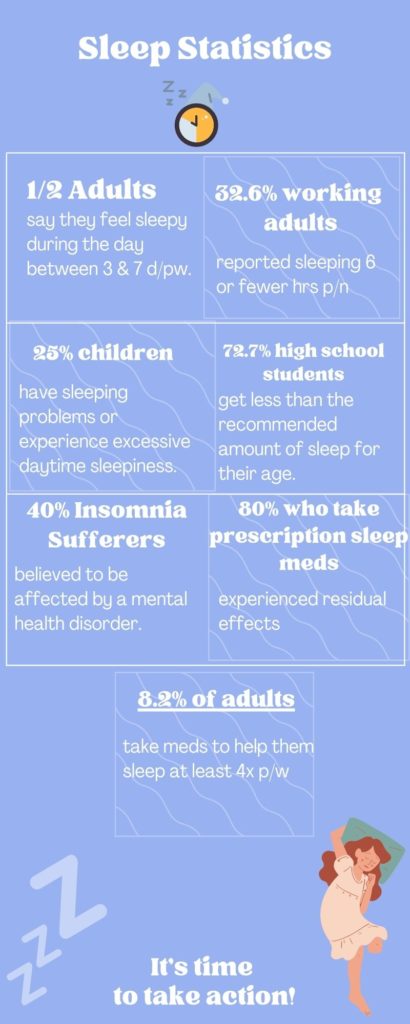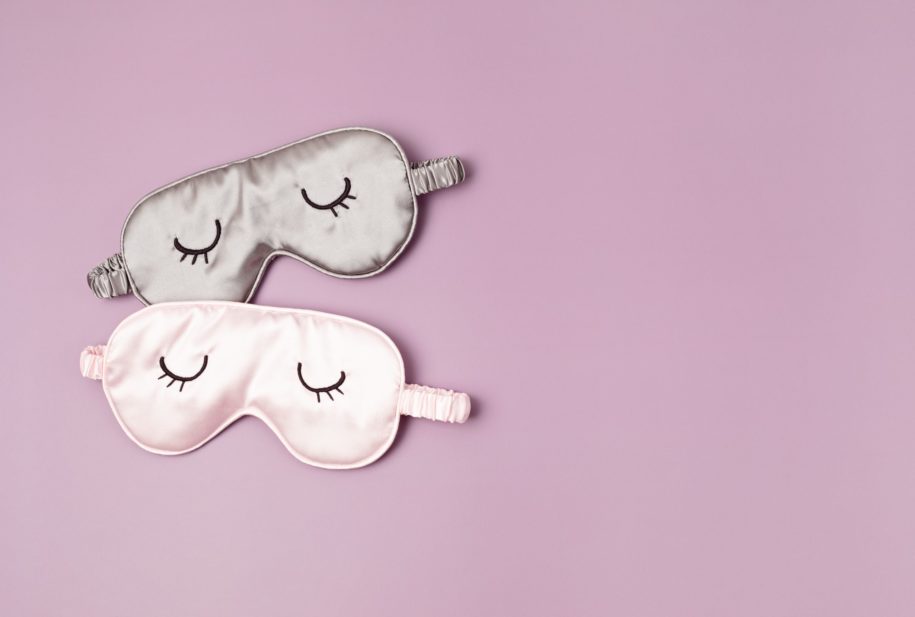I’ve been there, we all have (right?). Those nights were you toss and turn in your bed, clock watching – which seemingly always makes it worse, thinking non stop about work, relationships, deadlines, money, things from our past, things in our future, worrying… worrying… worrying.
Whether you have had this experience once, every so often or this is a constant daily struggle, I am here to tell you you’re not alone. In fact just take a look at the table below for current world statistics on sleep* (1)

So yes, we do all have bad night of sleep which is perfectly normal. But we can try to improve the quantity and quality of our sleep. Below I have outlined six scientifically proven, easy to implement sleep hygiene tips that can get you started on getting the sleep you deserve. (2)
- Regularity: Go to bed at the same time each night and wake up at the same time each morning (yes even on the weekends and during your holidays). This will help anchor your sleep and improve both the quantity and quality. Just like babies, our brain’s international clock not only likes things to be kept regular, but expects it.
- Room Temperature: Believe it or not, our body likes to sleep in cooler climes, keeping your bedroom cool at night is key to both initiating sleep and staying asleep.
- Darkness: Get your melatonin (your sleepy hormone) rising by keeping your evening environment nice and dark. With the constant use of mobiles, tablets and tv’s, we are a dark deprived society. So keeping things dimmed can work wonders on getting you sleepy. Use eye masks or blackout curtains to help best regulate your sleep/wake cycle.
- Get up and move: Don’t stay in bed if you can’t sleep. The general rule of thumb is that if you have not fallen asleep in 25 mins, don’t stay in your bed. Get up, go to another room, read, watch tv even, but don’t lie around tossing and turning. This is also the case if you wake up in the middle of the night and find yourself not being able to get back to sleep. Only return to bed once you feel sleepy.
- Monitor Alcohol & Caffeine intake: It’s best to avoid caffeine past midday / early afternoon. Caffeine takes around 12 hour (eek) to totally metabolise and get cleared from our bodies, so even if we think we have no problems with getting to sleep under the spell of caffinine, it will destroy our quality of sleep. The same can be said for the ol’ booze which has a sedentary effect.
- Wind down time: It takes our bodies a while to shut off and get into a peaceful slumber, so start your wind down routine about an hour or so before bed. See what works best for you, calming music? Essential oils, a nice bath, a book, relaxing music? Getting your wind down time will help you drift off easier and ensure you stay asleep longer.
Bear in mind that these tips can be added to your routine if you suffer from bad sleep from time to time or have difficulty staying asleep. But if you believe you have a sleeping disorder, then these simple tips may not be effective in helping you get to sleep. You may benefit from more regulated sleep methods such as CBT-I or require further tests from your doctor.
References:
1. E.Suni, K.Truong. Sleep Statistics. Sleep Foundation. 13/05/2022. https://bit.ly/3H9m997 2. M.Walker. 6 tips for better sleep. Sleeping with science. 09/2020. https://bit.ly/3NDRNht
